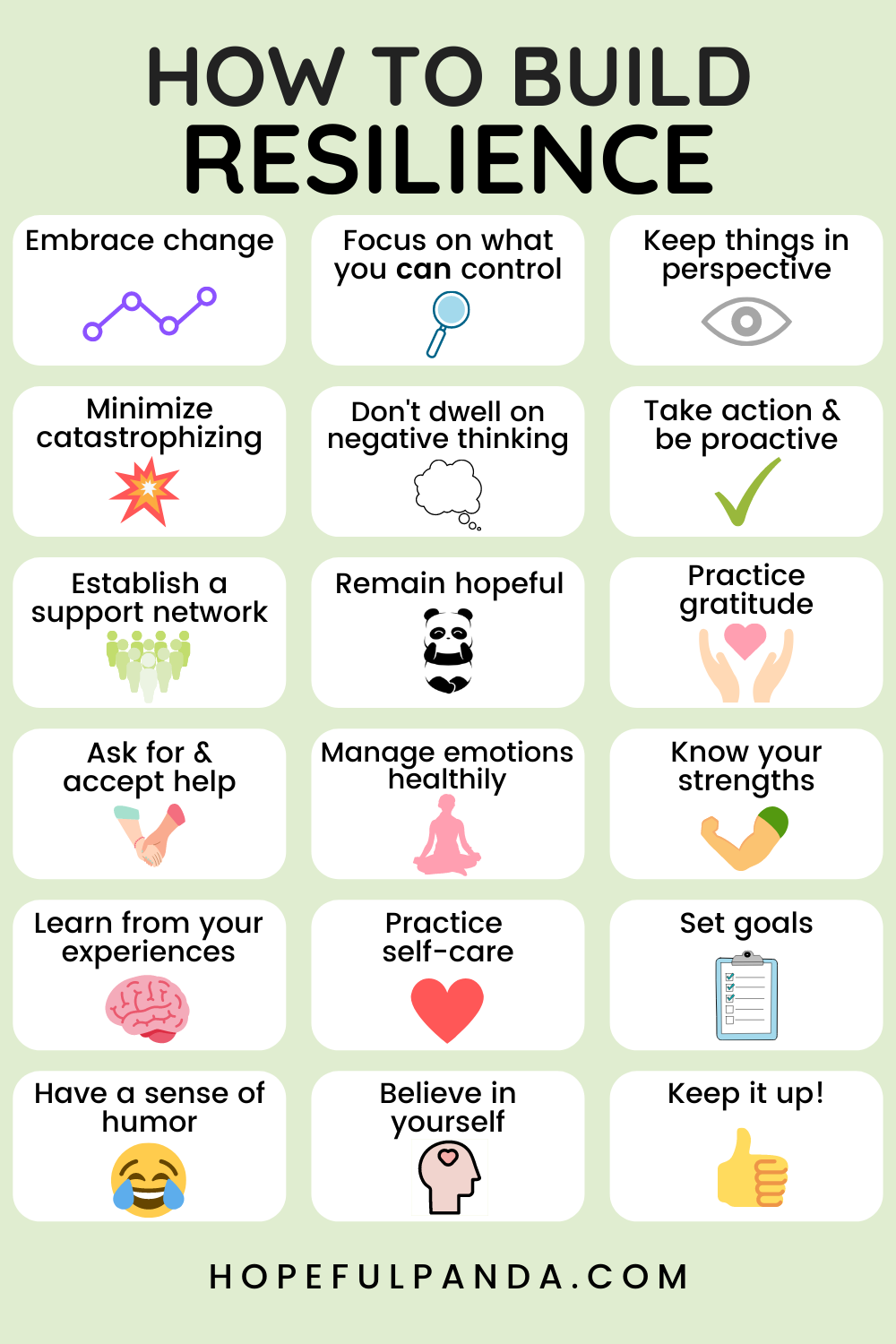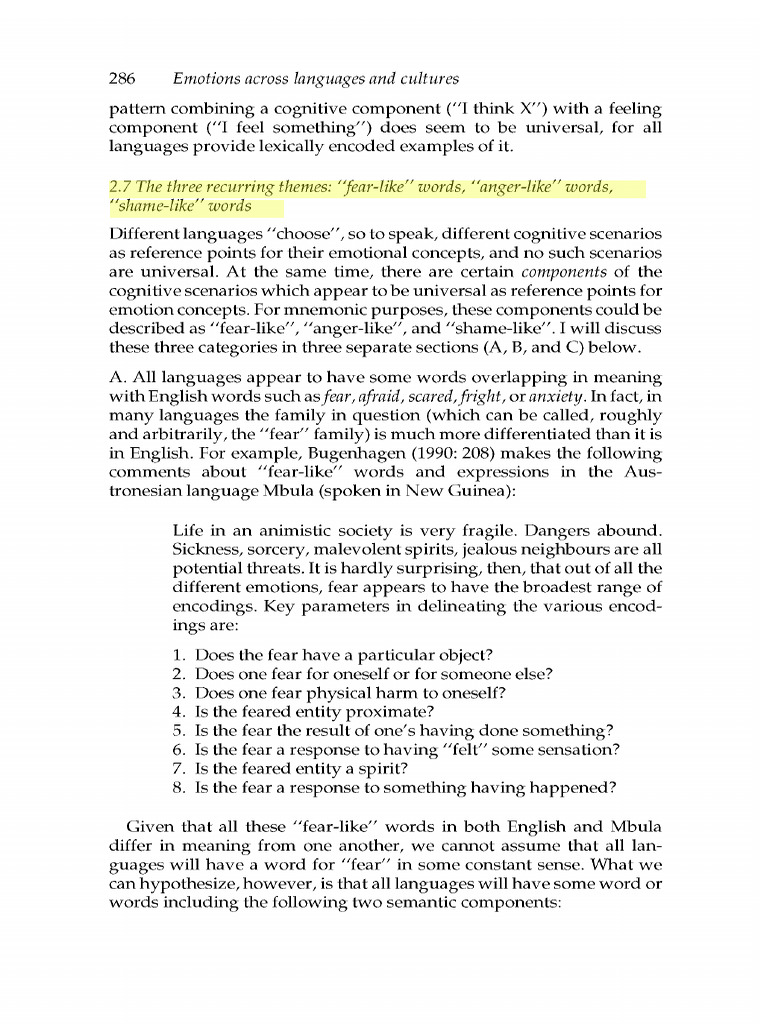From Bitter To Better: A Practical Guide To Resilience And Mental Health

Table of Contents
Resilience is the ability to bounce back from adversity, to adapt to change, and to overcome obstacles. It's about cultivating your emotional resilience, developing strong coping mechanisms, and mastering effective stress management techniques. Strong mental strength is fundamentally tied to resilience, allowing you to face setbacks with greater fortitude and emerge stronger on the other side. This article will provide a practical guide to building resilience and improving your mental health, turning setbacks into opportunities for growth and transforming your experience from "bitter" to "better."
Understanding the Roots of Resilience
Building resilience isn't about magically erasing difficulties; it's about understanding yourself and cultivating the right mindset and support system.
Identifying Your Strengths and Weaknesses
Self-awareness is the cornerstone of resilience. Take time for honest self-reflection to identify your personal strengths and weaknesses. This strengths-based approach helps you leverage your assets while addressing areas for improvement.
- Strengths: Examples include optimism, problem-solving skills, creativity, a strong support network, empathy, and self-discipline. What are you naturally good at? What are people always complimenting you on?
- Weaknesses: Identifying areas needing improvement allows you to develop strategies to overcome challenges. Are you prone to procrastination? Do you struggle with communication? Recognizing these allows for targeted personal growth.
This process of self-assessment is crucial for personal growth and developing your emotional resilience.
The Impact of Mindset
Your mindset significantly impacts your ability to cope with adversity. Positive thinking, while not about ignoring negative emotions, involves reframing negative thoughts and focusing on solutions.
- Cognitive Restructuring: Challenge negative self-talk. When you catch yourself thinking negatively, ask yourself: Is this thought truly accurate? Is there a more balanced perspective?
- Practicing Gratitude: Regularly focusing on what you're grateful for shifts your perspective and fosters a more positive outlook. Keep a gratitude journal!
- Mindfulness: Mindfulness practices help you stay present and grounded, reducing the impact of overwhelming thoughts and emotions. Even five minutes of daily meditation can make a significant difference.
A growth mindset, nurtured through positive psychology techniques, is essential for bouncing back from setbacks.
Building a Supportive Network
Strong social connections are a powerful buffer against stress. Your support network provides emotional support, practical assistance, and a sense of belonging.
- Identify Trusted Individuals: Who are the people you can rely on for emotional support? Nurture these relationships.
- Join Support Groups: Connecting with others facing similar challenges provides validation and shared experiences. Many online and in-person groups exist for various issues.
- Seek Professional Help: Don't hesitate to reach out to mental health professionals like therapists or counselors if you're struggling. Therapy provides a safe space to process emotions and develop coping strategies.
Practical Strategies for Building Resilience
Beyond understanding the foundations, practical strategies actively strengthen your resilience.
Developing Healthy Coping Mechanisms
Effective coping mechanisms help you manage stress and adversity in healthy ways.
- Exercise: Physical activity releases endorphins, reducing stress and improving mood.
- Meditation & Yoga: These practices promote relaxation and mindfulness.
- Nature: Spending time outdoors reduces stress and improves well-being.
- Creative Outlets: Engaging in activities like art, music, or writing provides emotional release.
- Healthy Diet: Nourishing your body with healthy food supports both physical and mental health.
Prioritizing self-care through these techniques significantly boosts your ability to handle challenges.
Embracing Challenges as Opportunities for Growth
Resilience isn't about avoiding challenges; it's about learning from them.
- Analyze Past Setbacks: Reflect on past difficulties, identifying what you learned and how you grew.
- Extract Lessons Learned: What could you have done differently? What strengths did you discover?
- Set Realistic Goals: Break down large goals into smaller, manageable steps.
- Celebrate Small Wins: Acknowledge and celebrate your progress, no matter how small.
This growth mindset turns setbacks into valuable learning experiences, fostering personal development and self-improvement.
Practicing Self-Compassion
Treat yourself with the same kindness and understanding you would offer a friend.
- Forgive Yourself for Mistakes: Everyone makes mistakes; self-criticism only hinders your progress.
- Treat Yourself with Empathy: Acknowledge your feelings without judgment.
- Avoid Self-Criticism: Replace negative self-talk with self-encouragement.
Self-compassion is crucial for emotional regulation and building resilience.
Maintaining Long-Term Mental Well-being
Building resilience is an ongoing process, requiring consistent effort and self-awareness.
The Importance of Self-Care
Regular self-care is essential for sustained resilience.
- Prioritize Sleep: Aim for 7-9 hours of quality sleep each night.
- Balanced Diet: Eat nutritious foods that support your energy levels and mood.
- Regular Physical Activity: Incorporate exercise into your routine.
- Setting Boundaries: Learn to say no to protect your time and energy.
A consistent self-care routine is fundamental to your overall well-being and mental hygiene.
Seeking Professional Support When Needed
Don't hesitate to seek professional help if you're struggling.
- Find a Therapist or Counselor: A therapist can provide guidance and support.
- Utilize Online Resources: Many online resources offer information and support.
- Reach Out to Helplines: Helplines provide immediate support during times of crisis.
Mental health services are available, and seeking help is a sign of strength, not weakness.
Continuous Learning and Growth
Ongoing personal development strengthens your resilience over time.
- Read Books on Resilience: Expand your knowledge and understanding.
- Attend Workshops: Learn new skills and coping strategies.
- Practice Mindfulness Consistently: Regular mindfulness enhances your ability to manage stress.
Continuous improvement and lifelong learning are crucial for maintaining strong mental health and resilience.
From Bitter to Better: Your Journey to Resilience
This article has explored key strategies for building resilience and improving your mental well-being. Remember, resilience isn't a destination but a journey—a process of continuous growth and learning. We've covered identifying personal strengths, cultivating a positive mindset, building a strong support network, developing healthy coping mechanisms, embracing challenges as opportunities, practicing self-compassion, and prioritizing ongoing self-care. By consistently implementing these strategies, you can transform your ability to navigate life's challenges, moving from "bitter" experiences to a "better" understanding of yourself and your capacity to thrive. Start your journey toward "From Bitter to Better" today by implementing one of the strategies discussed in this article. Remember, building resilience is a process, not a destination.

Featured Posts
-
 The Goldbergs Exploring The Shows Enduring Popularity
May 21, 2025
The Goldbergs Exploring The Shows Enduring Popularity
May 21, 2025 -
 Rtl Groups Streaming Business Progress Towards Profitability
May 21, 2025
Rtl Groups Streaming Business Progress Towards Profitability
May 21, 2025 -
 Jaw Dropping Antiques Roadshow Discovery Leads To Couples Arrest For Trafficking National Treasure
May 21, 2025
Jaw Dropping Antiques Roadshow Discovery Leads To Couples Arrest For Trafficking National Treasure
May 21, 2025 -
 T Helei O Giakoymakis Epistrofi Sto Mls Analyontas Tis Pithanotites
May 21, 2025
T Helei O Giakoymakis Epistrofi Sto Mls Analyontas Tis Pithanotites
May 21, 2025 -
 The Goldbergs Recurring Themes And Enduring Appeal
May 21, 2025
The Goldbergs Recurring Themes And Enduring Appeal
May 21, 2025
Latest Posts
-
 Le Festival Le Bouillon A Clisson Retour Sur Des Spectacles Engages
May 22, 2025
Le Festival Le Bouillon A Clisson Retour Sur Des Spectacles Engages
May 22, 2025 -
 Clisson Le Festival Le Bouillon Et Ses Spectacles Engages
May 22, 2025
Clisson Le Festival Le Bouillon Et Ses Spectacles Engages
May 22, 2025 -
 Festival Le Bouillon Spectacles Et Engagement A Clisson
May 22, 2025
Festival Le Bouillon Spectacles Et Engagement A Clisson
May 22, 2025 -
 Le Bouillon De Clisson Un Festival Engage
May 22, 2025
Le Bouillon De Clisson Un Festival Engage
May 22, 2025 -
 Provence Hiking Adventure Self Guided Walk Mountains To Mediterranean
May 22, 2025
Provence Hiking Adventure Self Guided Walk Mountains To Mediterranean
May 22, 2025
